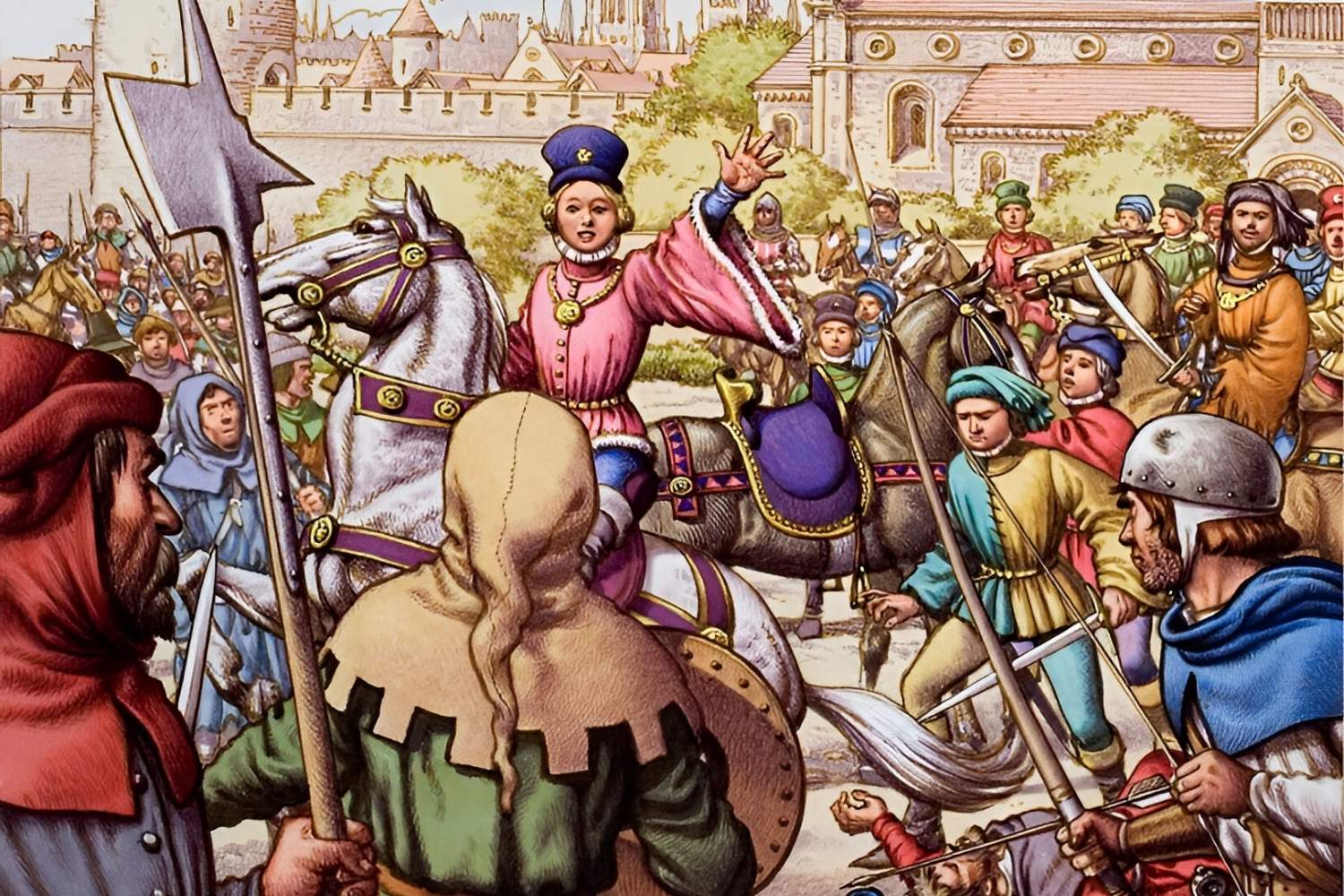
What was the Peasants' Revolt? The Peasants' Revolt of 1381 was a major uprising across large parts of England. It was driven by economic and social tensions following the Black Death, high taxes from the Hundred Years' War, and the rigid feudal system. Peasants, artisans, and even some local leaders banded together, demanding better living conditions, lower taxes, and an end to serfdom. The revolt saw thousands march on London, capturing key figures and causing widespread chaos. Though ultimately suppressed, the revolt marked a significant moment in English history, highlighting the growing discontent among the lower classes and planting seeds for future social change.
Key Takeaways:
- The Peasants' Revolt was a major uprising in 1381 driven by economic and social tensions, leading to demands for social equality and economic reforms, and ultimately influencing future movements for social justice.
- The revolt highlighted the need for social and economic reforms, led to a decline in serfdom, and left a lasting legacy that influenced literature, politics, and social thought in England.
What Was the Peasants' Revolt?
The Peasants' Revolt, also known as the Great Rising, was a major uprising across large parts of England in 1381. It was a pivotal moment in English history, driven by economic and social tensions.
- The revolt began in Essex on May 30, 1381, when villagers protested against a poll tax.
- The poll tax was introduced to fund military campaigns during the Hundred Years' War.
- King Richard II, only 14 years old at the time, was the reigning monarch during the revolt.
- The revolt quickly spread to Kent, where Wat Tyler emerged as a prominent leader.
- Rebels demanded the abolition of serfdom and a reduction in taxes.
Key Figures in the Peasants' Revolt
Several individuals played crucial roles in the Peasants' Revolt, leading and organizing the uprising.
- Wat Tyler became the face of the revolt, leading the rebels to London.
- John Ball, a radical priest, inspired many with his sermons advocating social equality.
- Jack Straw, another leader, helped organize the rebels in Essex.
- Simon Sudbury, the Archbishop of Canterbury, was targeted by the rebels for his role in enforcing the poll tax.
- King Richard II met with the rebels at Mile End and Smithfield to negotiate.
Major Events During the Revolt
The Peasants' Revolt saw several significant events that shaped its course and outcome.
- On June 13, 1381, rebels entered London, causing widespread chaos.
- The Savoy Palace, home of John of Gaunt, was destroyed by the rebels.
- The Tower of London was stormed, and Simon Sudbury was executed.
- King Richard II promised to meet the rebels' demands, but later reneged on his promises.
- Wat Tyler was killed during negotiations at Smithfield on June 15, 1381.
Causes of the Peasants' Revolt
Understanding the causes of the Peasants' Revolt helps explain why it erupted so violently.
- The Black Death had drastically reduced the population, leading to labor shortages.
- Landowners tried to enforce old feudal dues, causing resentment among peasants.
- Rising inflation and economic hardship made life difficult for the lower classes.
- The Statute of Labourers (1351) attempted to freeze wages at pre-Black Death levels.
- The poll tax of 1381 was seen as unfair and burdensome, sparking widespread anger.
Aftermath and Impact of the Revolt
The Peasants' Revolt had lasting effects on English society and governance, even though it was ultimately suppressed.
- King Richard II's promises to the rebels were quickly revoked after the revolt was quashed.
- Many rebels were hunted down and executed in the aftermath.
- Despite its failure, the revolt highlighted the need for social and economic reforms.
- The revolt led to a gradual decline in serfdom over the following decades.
- It also influenced future uprisings and movements advocating for social justice.
Legacy of the Peasants' Revolt
The Peasants' Revolt left a lasting legacy, influencing literature, politics, and social thought.
- Geoffrey Chaucer's "The Canterbury Tales" reflects the social tensions of the time.
- The revolt is often cited as an early example of class struggle in England.
- It inspired later movements, such as the English Civil War and the Chartist movement.
- The Peasants' Revolt is remembered as a symbol of resistance against oppression.
- Modern historians view the revolt as a turning point in the transition from feudalism to a more modern economy.
Final Thoughts on the Peasants' Revolt
The Peasants' Revolt of 1381 wasn't just a blip in history; it was a significant event that highlighted the struggles of the lower class against oppressive systems. This uprising showed the power of unity among common people, even if their immediate goals weren't fully achieved. The revolt led to a gradual shift in the feudal system, planting seeds for future social changes. Understanding these historical moments helps us appreciate the progress made over centuries. It also reminds us that change often starts from the ground up. The bravery and determination of those peasants continue to inspire movements for justice and equality today. So, next time you think about history, remember the Peasants' Revolt and its lasting impact.
Frequently Asked Questions
Was this page helpful?
Our commitment to delivering trustworthy and engaging content is at the heart of what we do. Each fact on our site is contributed by real users like you, bringing a wealth of diverse insights and information. To ensure the highest standards of accuracy and reliability, our dedicated editors meticulously review each submission. This process guarantees that the facts we share are not only fascinating but also credible. Trust in our commitment to quality and authenticity as you explore and learn with us.
